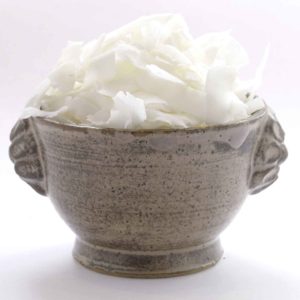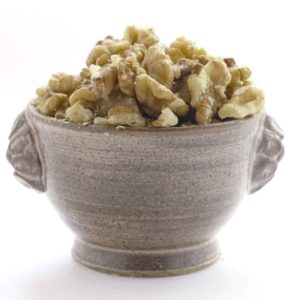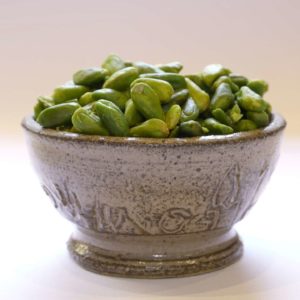0
- ONLINE GROCERY
- OUR HISTORY
- BLOG
- CONTACT
- MY ACCOUNT
- PRO
3,00 €13,20 € /kg
Plain or as a snack, raisins can be enjoyed on the go! Originally from Greece.
For breakfast, use them in mueslis, cereals, oatmeal or in breads and pastries (brioche, raisin bread...).
As an aperitif, it can be enjoyed on its own or with other snacks (almonds, cashews, hazelnuts, coconut flakes and/or other dried fruits...), in bite-size appetizers (fresh goat's cheese-macadamia-pepper-raisin)...

A white table grape variety, Sultan is grown in Turkey and around the world for the production of dried grapes. In the USA, Sultan Izmir is known as Thompson Seedless (William Thompson was one of its first growers across the Atlantic). The fruit is pleasant to eat as it is seedless, making it ideal for drying. The Sultan Izmir is the sweet base of my breakfasts; I often accompany it with the larger, greedier Khorog green grape. Our organic raisins come from Greece.
A product of the vine, the grape is one of the oldest known fruits...
Archaeologists agree that the cradle of the first wild vines (Vitis sylvestris) was in the Mediterranean region, and that its fruit, grapes, was eaten by man as early as the Palaeolithic... Then, in the Neolithic period (around 8,000-4,000 BC), in Asia Minor (between the Arabian Gulf and the Black Sea), man began to cultivate vines. The first grape varieties were spread around the Mediterranean by the Phoenicians, Greeks and Romans. Indeed, the Greeks were fervent consumers of wine (as attested by mythology and the cult of Dyonisos or Bacchus...). The Egyptians and Romans also consumed grapes fresh, dried (apyrene varieties - i.e. seedless grapes - have been used since Antiquity to produce raisins) or in the form of wine; the latter greatly contributed to the spread of its cultivation throughout the Empire.
The Sultan Izmir grape, from the Izmir region of Turkey, is a product of the Good Food Foundation organic fair trade project.
A white grape variety, it is grown mainly for the production of fresh grapes and the preparation of raisins. The grapes are small, light-brown-golden (a guarantee that they have not been treated with sulfur), and sweet. A delicious snack!
to be consumed in moderate quantities due to their high carbohydrate content.
They can be eaten occasionally or every day. In this case, do not exceed 30 to 40g of raisins.
Recommended for :
- everyone: raisins are a source of flavonoids, antioxidants that neutralize free radicals. This helps prevent cardiovascular disease and certain cancers*...
- for athletes, children and teenagers: before, during and after exercise, or as an alternative to sweets. As the highest phosphorus intake among dried fruits, raisins are a muscle and brain booster, improving physical and intellectual performance (memorization, concentration, etc.).
pregnant and breast-feeding women: their energy, protein, lipid, carbohydrate, mineral and fiber requirements are increased (from the second trimester onwards).
the elderly: who often lack appetite or suffer from intestinal sluggishness and are looking for a healthy, easily digestible "sweetness"; grapes are rich in easily-assimilable fiber.
The Sultan Izmir grape is seedless. It can therefore be eaten by people suffering from diverticulosis.
tired people, prostrate workers, truck drivers, sales representatives, etc.: it helps combat fatigue by rapidly replenishing the body's energy and minerals.
vegetarians, vegans: for its nutritional value: grapes are a source of copper, potassium, phosphorus, iron, manganese, magnesium, B vitamins (B2, B6, B9)...
Grapes can be used in sauces and dressings, mixed salads or raw vegetables
(endive, grated carrot, grated cabbage, walnuts, grapes), savoury-sweet fillings (vegetable, etc.),
oriental recipes (tabbouleh, couscous, tajines...), meats (foie gras, poultry, pork,
beef), fish (cod, monkfish), empanadas, pasta, cooked vegetables, cereals (bulgur, millet, semolina...).
Sweeten your dairy products (fromage frais, yogurt, etc.) and soften your cheese platter (goat's, sheep's). Ideal in desserts and pastries: fresh fruit salads, compotes, custards, clafoutis, cakes, scones, muffins, cookies, kouglof, rum babas, puddings, Ghriba (Moroccan cake), crumbles, semolina or rice cakes, rice pudding, creams, crème brûlées, pancakes, ice cream or ice cream (rum-raisin, for example)...
Tip: For softer grapes, soak for 1/2 hour in water, apple juice or grape juice to rehydrate.
Sultan Raisins should be part of a varied, balanced diet.
However, this product is not recommended in the event of :
- diabetic diets,
- hypertriglyceridemia (fructose sensitivity),
- colopathy (ulcerative colitis, diarrhea),
This dietary advice does not replace medical advice.
* Jo JY, Gonzalez dM, Lila MA. Effects of grape cell culture extracts on human topoisomerase II catalytic activity and characterization of active
fractions. J Agric Food Chem. 2005;53:2489-2498.
Botany: Vitis
Origin : Greece
Ingredients : 100% organic Sultan Izmir grapes
Shelf life: 200-day guarantee
Quality : ORGANIC
Other names : akouno, banati, bealo bez seme, cekizdecsis, fehér szultan, kechmiche jaune, kechmish blanc, keeshmeesh, kichmichi (Kandahar, Afghanistan), kishmish blanc, kishmish safid, kis-mis alb, kismis, kismis belii ovalny, perzsiai fehér, roumined, seedless white, sultana, sultani, sultanina, Sultan Izmir blanche, szultan szölö, tchekirdeksis, Thompson seedless.
Nutritional value of Sultan Izmir grapes
(Per 100 g)
Protein
Carbohydrates
Sugars
Fat
Saturated fatty acids
Salt
| Weight | 50 g |
|---|---|
| WEIGHT | 100g pouch, 250g pouch, 500g pouch, 1000g pouch |
| DLUO | 01/04/2019 |
| CONTINENT | Europe |
| COLOR | Ochre-brown |



